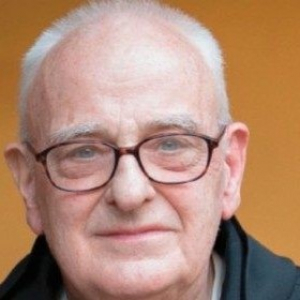Peter MALONE
To Olivia
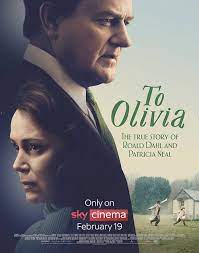
TO OLIVIA
UK, 2021, 94 minutes, Colour.
Hugh Bonneville, Keeley Hawes, Darcy Ewart, Isabella Jonsson, Conleth Hill, Geoffrey Palmer, Sam Heughan.
Directed by John Hay.
While the real-life Roland Dahl and Patricia Neal were world-famous, he with his writing reputation, she with her acting career, this film offers a rather small focus on their lives and relationship, limiting itself to 1961 to 1964, with minimal information about the two prior to these years and no information as to the subsequent years and the struggles, stroke, rehabilitation, campaigning for vaccination against measles, she is one affair, the divorce, his second marriage, death, Patricia Neal living to 2010.
Hugh Bonneville, whom practically everybody knows from his central role in Downton Abbey, offers an interesting, complex interpretation of Dahl. (Although one commentator said he does an excellent Jim Broadbent who, when younger, would have fitted this role perfectly.) Keeley Hawes, best known for television series, physically resembles Patricia Neal. There is an episode where the couple go for help to Dahl’s school mentor, Geoffrey Fisher, the Archbishop of Canterbury who crowned Queen Elizabeth in 1952. Veteran Geoffrey Palmer, in his final film, gives a vigorous performance as a very narrow-minded Anglican cleric.
In 1961, the couple had been married for several years, he establishing himself as a writer of children’s stories, concerned about the lack of success of James and the Giant Peach, experimenting with Charlie and the Chocolate Factory. Patricia Neal had been in films and on stage since the late 1940s. They had met in Hollywood, married, she moving to England, their eventually having five children.
However, there is tragedy. Their eldest daughter, Olivia, still very young, contracted measles and died. There were no vaccinations. The bulk of the film focuses on Roald Dahl and his grief, obsessive grief, extreme grief and its consequences on his behaviour, his treatment of his children, his treatment of his wife, not mentioning his daughter’s name, forbidding others to talk about her, refer to her.
In that context, Hollywood director Martin Ritt arrives offering Patricia Neal the script for what was to become Hud. She is attracted by the script, Dahl thinking it beneath her. Some conflict but she goes to Hollywood taking the children. He eventually follows. For film buffs, there are some interesting sequences where Patricia Neal goes for an audition with the star of Hud, Paul Newman (and actor Sam Heughan doing quite a good impersonation of the young Paul Newman, and suggestions of lookalike).
The time in Hollywood is successful. Dahl is able to write Charlie and the Chocolate Factory and, ultimately, great success and reputation. Patricia Neal won the 1963 Oscar for Best Actress.
Which means that the film ends happily, information about the couple being campaigners for vaccinations for children. (It is not indicate the struggles and the unhappiness of the coming years.)
- Audience awareness of Roland Dahl, his books, film versions, stage versions, musical versions? Audience awareness of Patricia Neal, her Hollywood career, Oscar?
- The time period, 1961-1964? Little background to what went before, Dahl and his war service, writing, marriage to Patricia Neal in the 50s, their five children? No further information as to what happened to them after 1964, Patricia Neal’s stroke, tensions in the marriage, divorce, Dahl’s affair and second marriage?
- The English locations, local, the hall and the encounter with the children, the family home, the countryside, hospitals, funerals? The contrast with the American sequences, Hollywood, the sign, the views, the ocean? Studios, interviews and auditions?
- The focus on Roald Dahl, age, British, experience, success with his writings? His drawing on experiences for his stories? The opening, the children, Gus and his response, the mother and the bet, Patricia being mischievous? The home life, his writing, the background of her Hollywood career? The relationship with the children?
- Olivia, the measles, no vaccination, her death? The sadness of the funeral? The impact of her death on Roald and, not mentioning her name, his grief, withdrawing into himself, the effect on everyone else, the children, Patricia? The attempts to challenge him? His surly behaviour, his writing, wanting Patricia to respond, her praise yet his interpretation, tearing up the manuscript?
- Tessa, her age, with her brother and sister, the death, relationship with her parents, in the shadow of Olivia with her father? Bonding with her mother?
- The visit to Geoffrey Fisher, the glimpse of the coronation of Queen Elizabeth, memories of his role at school for Dahl, the conversation, the hope for help and the marriage? His very narrow outlook on morality and life, religion?
- The visit of Martin Ritt, friendship with Patricia, Roald and his time in Hollywood, the discussions about the script, for Hud? Dahl thinking it below Patricia? Her interest? The tension about her acceptance? Dahl’s behaviour? Patricia leaving, taking the children? Their experience of Hollywood?
- Martin Ritt, his reputation as a director, the Hollywood blacklist, his re-emergence, the casting for Hud, the possible actresses, asking Patricia? Paul Newman as lead? The visit to the studio, Patricia nervous, Paul Newman (and the actor looking like him), the initial audition, a sense of failure, the discussions with Dahl, a new interpretation, her return, effective, Paul Newman accepting?
- Her return to England, pregnancy, the Oscars, her winning? And Dahl writing Charlie and the Chocolate Factory, Patricia’s response, its success?
- An episode in married life, in family life, death of a child, grief, obsessive grief, moving on from grief? No further information about the life of Roald Dahl and Patricia Neal?
Lunana: A Yak in the Classroom
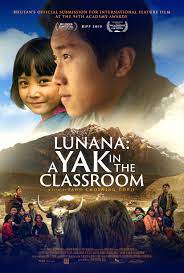
LUNANA: A YAK IN THE CLASSROOM
Bhutan, 2019, 110 minutes, Colour.
Sherab Dorji, Ugyen Norbu Lhendup, Kelden Lhamo Gurung, Pem Sam.
Directed by Pawo Choyninng Dorji.
Have we seen any films from Bhutan? In the late 90s, there was the popular film, The Cup (with Australian connections). In fact, Lunana has some Australian connections and some scenes in Sydney. (A recommendation for those interested, Wikipedia has an entry with a list of all films from Bhutan in alphabetical order with the year of release.)
Yes, at about the 60th minute of the running time, a big black yak, Norbu by name, does take his place in the classroom and settles there, out of the cold, supply of grass to eat, supplying dung for necessary fires, serving as a reality check as well as a symbol. But, more of that later.
Very few of us are likely to visit Bhutan, high mountains, surrounded by China and India. So, apart from National Geographic documentaries, here is a wonderful opportunity – to see something of life in the capital city, Thimpu, a lot of the modern 21st-century there, social media, music and clubs, the influence of the West, Hollywood references… But, some traditional elderly people. The film also offers the opportunity to visit the countryside, the majestic mountain scenery, forests and rivers, and one of the most remote villages and schools in the world, up in the mountains, Lunana.
The way we visit is by accompanying, but being invited to identify with, the central character, a young man, a government teacher on a five-year contract, Ugyen, whose dream is to migrate to Australia, already setting in process his Visa application. He does not want to be a teacher. He wants to be a singer.
Ugyen is played by Sherab Dorji, his only films so far (as is the case with the rest of the cast, many of whom come from the high mountains). Ugyen is, reluctantly, appointed to Lunana, an eight day journey from the capital. We share his reluctant journey, at first by bus, but then on foot, camping out, the touch of the primitive, but his listening to his music app. He is met by two yak-herders, courteous as are all the members of the village, respecting the ancient religious traditions, Ugyen bypassing them, a secular 21st-century type.
Everything in the village is primitive, outside toilet (though the yak-herders have brought him toilet paper rather than local leaves), a difficult fire, needing yak dung cakes to get it started, and practically nothing in the rather open classroom. He is instantly ready to go back!
But, we have already realised that this is one of those films that reminds us that 21st-century Western-style, self-preoccupied hedonism, lack of awareness of those less privileged, needs to be challenged. There is more to life, we need to respond to those who are needy. The children are nice, attentive – and Ugyen postpones his departure. The locals make a blackboard and chalk for him, lessons improve, there is singing, his friend from the capital sends a box full of resources and a new ball to play with, time passes, the children respond, the local chief is supportive, there is a charming young woman, a singer, who suggests that Ugyen may have been a yak in a previous life, a creature who is very dependent – and it is she who urges the yak in the classroom.
Winter comes. Will he leave? Will he stay? What about Australia? All these questions are answered – but, a touch of the harmless spoiler, he finds himself in Sydney singing at a club, the self-preoccupied somewhat hedonistic young people do not listen to him. He sings instead one of his own songs… And that is where the screenplay leaves us, to make up our own minds about what we Think Is decisions about his future will be.
A humanistic film with social conscience, with charm, and with challenge to altruism.
- A film from Bhutan? Audience awareness of the country, its culture?
- An opportunity for an audience to visit Bhutan, the capital, city life and people, Asian influences, Western influences? A visit to the vast countryside, the track to the mountain village, forests, rivers? The remote village, the high altitude, the buildings, the way of life?
- The musical score, the Western songs, the traditional songs?
- 21st-century culture in Asia, the traditions, the secularism of the capital, lifestyle, the different generations, nightclubs, dress, Hollywood references? The contrast with the yak herders, coming down from the mountain village, the halfway point, buying essentials, mod cons for the teacher? The simple way of life in the mountains, herding, cooking, crops in the fields, the children? The need for teaching? The teacher “touching the future”?
- Ugyen and his story, his background, the death of his parents, living with his grandmother, tensions with her, yet his love for her and missing her in the mountains? Working for the government, teacher training, his contract, for years, not wanting to teach, the brochure on Australia, setting the Visa application in motion? His hopes? Life in the city, friends, girlfriend, modern, phones, social media, music, his singing?
- The interview, the official, sending him to the mountains? His farewell, his grandmother, his good friend working on the Visa? The bus, listening to the music, reaching the halfway point, meeting the yak herders?
- The trek, the mountains, his being weary, the camping, days and nights, the ritual at the mountain pass, the local religions, respect for the ancestors and the powers? His being totally secular?
- Arrival at the village, the leader and the people there to meet him, the two hours walk? His first impressions of the village, his room, basic, the toilet, outside, about toilet paper and leaves, frugal? The classroom, no blackboard, the trunk with his predecessors teaching aids? His not wanting to be there, wanting to return home?
- The class captain, waking him up, going to the class, the national anthem, the flag, loyalty to the King? The class, the names, hopes? Dismissing the class, going to the mountains, the encounter with Soldan, her song? The leader visiting him, the conversations? His story, singer, the death of his wife, stopping singing? The yak herders, meeting the wives? The class captain, her alcoholic father?
- The second class, the children’s names, the paper, the pencils, the maths tables, later lessons, English words, his sending down to his friends, the resources, the posters, using the traditional paper from his windows when paper ran out? The response of the children, the play, the new ball? Outside, singing? The bonding between teacher and students?
- Soldan, the stories about the yaks, the Buffalo and the yak, Soldan suggesting that the teacher was something like a yak, in a previous life, the literal yak in the classroom, Norbu, settling in, against the cold, the importance of yak dung, his having to learn how to light a fire?
- Time passing, his becoming part of the village, winter coming, his decision about leaving, the leader, the guides, ready, his packing, departure, Soldan and the song, the Farewell? Going down the mountain?
- The news of his visa, the final scenes in Australia, the club, just like the club in Bhutan, not listening to his singing, his paws, attention, singing the local song, the effect on him, and film leaving it to the audience to decide what his final decision would be?
Senior Moment
SENIOR MOMENT
US, 2021, 92 minutes, Colour.
William Shatner, Jean Smart, Christopher Lloyd, Don McManus, Katrina Bowden, Esai Morales, Carlos Miranda, Joe Estevez .
Directed by Giorgio Serafini.
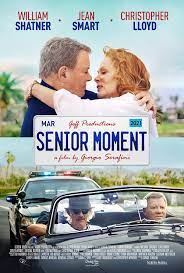 In fact, there are some entertaining senior moments for the oldies’ audience.
In fact, there are some entertaining senior moments for the oldies’ audience.
The setting is Palm Springs, the easy life, the older generation, for the younger generation. However, the focus is on the older generation, especially on William Shatner’s Victor Martin, ex-NASA pilot, skilled reputation, owner of a prized car with speed capacities, spending a lot of time ogling the young bikini clad girls who seem to populate a lot of Palm Springs. He is accompanied by his buddy of many decades, Sal, played by Christopher Lloyd. We see the two of them together, outings, driving, scoffing at younger drivers, challenging them, outspeeding them, and frequently picked up by the police, eventually Victor having to go to court, smugly defending himself and interviewing to 6, but footage of his reckless driving and endangerment played in the court and his losing his car!
Perhaps some of the oldies, macho males, watching the film thus far will be identifying with Victor and Sal. However, as might be expected, there is some moralising and challenging to come. (Even as many of the audiences will be wondering whether Captain James T. Kirk would have been like this in his senior years on whatever planet he retired! Four days after the film’s release William Shatner in fact turned 90!)
Victor has to take the bus, an alien experience, treks to the supermarket, wants to get his license back but fails dismally on the first chance, is coached by a shady entrepreneur – but, ultimately, getting back his license and the opportunity to recover his car.
But, it doesn’t quite work out exactly as he initially might have imagined. First of all, there is that excellent veteran actress of film and television, Jean Smart as Caroline, who has witnessed his recklessness but seeing him at the supermarket, on the bus, and when he comes into her restaurant, smitten by her and her strudel. She also has an environmental cause, to preserve local tortoises. Victor is charmed, returns, accepts rebukes, wants to woo her with an elaborate exercise to create a papier-mâché tortoise support her cause… But, he is wary of the dapper artist who seems to have charmed Caroline – but, the last moment, is introduced to the artist’s husband. So, all is well.
Victor does the right thing by Caroline, the right thing by his young rival and his car, accepts some of the realities of ageing and is happy to have a second chance on life.
For the oldies’ audience – younger audiences might think these themes are so remote!
Michael Casey OCSO, Tarawarra Abbey, Honorary Doctorate
Michael Casey OCSO, Tarawarra Abbey, Honorary Doctorate
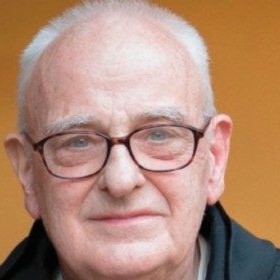
Those who lived at Croydon Monastery from 1954 probably visited the Cisstercian Abbey at Yarra Glen, Tarrawarra (Cisterians of Strict Observane, the Trappists) – and met Michael Casey. His parents were a great support to the MSCs who worked in Park-Orchards- Warrendyte parish in the 1970s-1990s.
This is a long feature but worth reading to appreciate the contemplative vocation in today’s world. With thanks to Tim Brennan for sending it.

Michael Casey, 79, an Australian Cistercian monk of strict observance, is unanimously recognized as one of the most authoritative voices in contemporary Christian spirituality. His books, articles and conferences on the relevance of the Rule of St. Benedict, on the monastic tradition and on Bernard of Clairvaux, are spread throughout the world, and he is recognized by some as a spiritual heir of Thomas Merton. "L'Osservatore Romano" met him in Rome, where a few days ago he received a doctorate honoris causa in theology at the Pontifical Athenaeum Sant'Anselmo.
Father Michael, in the decisive passages of history the monastic presence has always had a decisive importance. However, in the epochal change that we are experiencing, monasticism today plays a fairly marginal role.

Certainly, it is true: think, for example, that a large part of the classical and humanistic culture that we study today in schools and universities has come down to us through the preservation and transmission carried out by generations of monks. But, you see, the monks guard the memory, the tradition. It is not the job of monks to change the world, nor, indeed, to change people. Monks are not required to be numerous, and even less to know how to impose a cultural hegemony. Rather, I think of monks as a small group of ordinary men and women who seek to live the Kingdom of God in simplicity. Nothing more than that. The Grace that monks can transmit to the world today comes from here: being ordinary, small, simple. The sanctity that monks seek in their simple life must be attractive, we do not have to convince or convert anyone. On the other hand, the Gospel does not tell us that we must change the world, but that we must be the salt of the earth. And to be salt of the earth, one does not need to be numerous. Look at Pope Francis how, alone, he manages to speak to the entire world, sowing - beyond both cultural and religious boundaries - words of fraternity and peace. That being "small" that I was telling you about then paradoxically becomes very big.
What does it mean to live in simplicity?
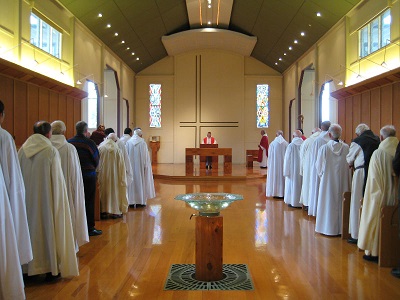
It basically means to enjoy the essentials. I emphasize "enjoy." It is not enough to live soberly. It is necessary to know how to enjoy and rejoice in this sobriety. The monk must live the joy of simplicity, and it is precisely this joy that exerts an attractive force in those who come into contact with the monastery. Once a gentleman who had come to visit us said to me at the end of the day: "I, Father, am not religious, but if I found myself becoming a believer, and had to choose a religion, I would choose yours: I mean I would choose your way of life, because you all seem happy with your essential life. You can feel something in the air here with you." And this attraction is exerted through individual person-to-person contact, without any convincing. Without blowing trumpets. Here, monks are the ones who don't blow trumpets. This is nothing new: it has always been so in the history of monasticism. This is why the Rule places hospitality among the characteristic traits of monastic life. And we too are nourished by these encounters, without any sense of superiority. It is not by chance that Benedict tells us that we must always ask ourselves whether that unexpected guest has not been sent on purpose by the Lord to instruct us or even to correct us.
This also implies a good dose of humility.
This certainly does. The monk is either humble or he is not. A humility that is not limited to the relational dimension, but is a total lifestyle. A humility that must be built in poverty. Monks (re)build humility every day; they do not build monasteries.
How does one become a monk?
There is something that sticks in your heart. Something that you might not have felt until the day before. A feeling inside something. You don't decide to become a monk, you are a monk; and you are one even before being recognized as such. Even though many years have passed, I remember my vocation well. I was young, but I didn't aspire to "do" anything in my life, rather I already felt that I "was" something, but I didn't know what. Then one Sunday my family and I visited a monastery and I immediately understood that there was that "something". Not the external aspects, the appearances, but that "air" that I was saying before can be felt even by a non-believer. You see, the Spirit is not something you learn but something you take in. You just have to exercise your senses to receive it."

For prospective visitors, the Guest House
Institutional monasticism seems to be in crisis. But new forms of cenobitic life are springing up here and there.
Well, you see, on the question of numbers, I have already answered that the monastic witness in the world does not depend on the number of monks and monasteries. I can only add that I notice that monastic life suffers when the monks are burdened with additional tasks to those prescribed by the rule, such as the management of schools, parishes, etc... With regard to the new foundations of modern inspiration, I limit myself to observing that often, even in the face of beautiful intuitions, they do not survive the founder.
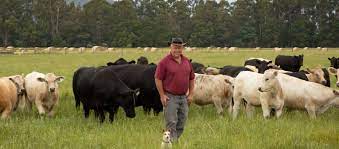
In the case of the Cistercians, with their nine centuries of history, strength comes - along with their own style of life and prayer - from a founding literary tradition (Bernard, Aelred, etc.) that maintains a marked character of relevance. There are three cornerstones of our lifestyle that characterize us: the process of filiation of new foundations, the constant practice of visitations, and the centrality of decision-making in the general chapter. The balance between the autonomy of the individual monastery and the general direction of the charism is the hallmark of the Cistercian experience; the autonomy of the monastery when it is well interpreted is a good thing, but when it is not, it can be lethal.
But isn't the spiritual witness of the monks out of time? Does it not remain hidden from the hectic contemporary world?
You see, it is precisely the frenzy of today's world that generates a great, and often unfulfilled, demand for spirituality. However, we are not always able to satisfy this demand, which then finds easier answers elsewhere. Answers - I am also thinking of oriental philosophies - that concede more to the individualistic dimension that seems to dominate our time. People often perceive Christian spirituality as "imposed" and so they construct a self-made religion. I think that a certain insistence on the moral aspects of our belief (for example, on sexual morality) has ended up generating the perception of religion as an essentially normative fact, debasing the greatness and beauty of the kerygma. We must respond to these individualistic escapes by emphasizing the sense of community, because an authentic spirituality is nourished essentially by being in communion. Those who come to visit us in the monastery are attracted first of all by our living together.
The occasion of this recognition of the Anselmianum Athenaeum is also the occasion for a review of his life.
Look, I do not think I am a spiritual authority, my words - which are recognized as words of wisdom - are not mine, because I am my community. I simply think I am a man of tradition, I have always been: I have dedicated my whole life to the preservation and transmission of memory, of tradition. This is what monks have always done in their history. Looking to the past to embark on the future.
What is tradition?
As Pope Francis says, tradition is not a museum. Tradition also changes, and is constantly reforming itself. I like to say that "tradition" is a verb, not a noun. Think for example of the liturgy, which has been repeated for centuries, and for centuries has been a source of new life. We look to tradition when we are thirsty for new life. And I am still very thirsty.
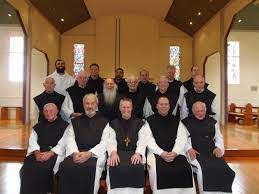
di ROBERTO CETERA
Good Boss, The
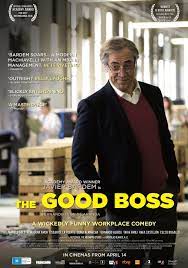
THE GOOD BOSS
Spain, 2021, 120 minutes, Colour.
Javier Bardem, Manolo Solo, Almudena Amor, Oscar de la Fuente, Sonia Almarcha, Tarik Rmili Celso Bugallo.
Directed by Fernando Leon de Aranoa.
Of course, and by the end of this drama, with its touches of ironic humour, we are in a better position to comment on what a good boss can be like.
The setting for this Spanish story is a factory which produces all kinds of scales, the CEO, Blanco, inheriting the company from his father. The factory is expecting a visit from a local committee because it is a strong candidate for an industry award. Another for a large wall already studied with plaques.
The success of the film and its enticing its audience is the presence and performance of Javier bardem. He has an inherent charm. But, even with the charm, we see that he is a strong and determined character, and touches of ruthlessness which will emerge. We see him speaking to his employees, genial, urging them on. But, there are many many problems.
The film uses the structure of highlighting life in the factory over eight days, signalling each day of the week. The factory seems to be running well, production, contracts, international deals, trucking equipment… However, the smooth running is marred by the response of an accountant who has been fired. He brings his young children to the factory to protest his firing, denouncing Blanco. And, then, he sets up a protest camp on public ground opposite the entry to the factory, placards, bullhorn, denunciations every time Blanco arrives or leaves. The protester is not entirely a sympathetic character, even when he brings his children to demonstrate with him, but his situation does raise issues of justice, hiring and firing and social consequences.
As the week progresses, more problems to be solved. A long-time associate is becoming paranoid about his wife’s behaviour, even getting Blanco to sit vigil in the car outside the house where his wife has been tracked. And the repercussions on the mental health of the employee, the consequences for bad decisions and disruptions are also highlighted. But, Blanco seems to take these episodes in his stride, listening, talking, attempting to smooth things over.
In fact, there are quite a few episodes like this throughout the film, an old employee has a son who mixes with a group of anti-Arab youths, bashing the locals, Blanco getting amount of police custody. And there is a new young intern who reminds us that Blanco also has a roving eye, despite his home life and happy marriage, a flirtation, and more, that eventually will blow up in his face.
By the end of the week, the seemingly good boss with his charm is revealed as more determined and ruthless than we might initially have thought, but always able to maintain the charm.
So, a drama about the workplace, social justice, capitalism, consequences, along with the personal dramas that haunt the good boss.
- The title? Industry, captains of industry, qualities, defects?
- The setting, the focus on the factory, offices, working plant? Exteriors, the gate and security guard? Rose and his encampment across from the entry? Homes, restaurants, apartments? The musical score?
- The device of having the action takes place in successive days of the week?
- Blanco, Javier barred him and his screen presence, performance? His role as the head of the factory, inheriting from his father, affluent background, his management of the company, the many awards, the impending visit of the committee and new award? His dealings with his staff, his assistant and practical management? The firing of José, the appeal, hard-headed, fair and compassionate words? The consequences of this firing?
- The practical management of the company, the different responsibilities, failures, upsetting of contracts, trucking and deliveries? Morale is and his breakdown, the consequences for the factory? Others stepping in? Khalid, Arab background, prejudice? Morale dares and his antagonism? Khalid, confident, efficient? And the revelation of his relationship with Morales wife? And then with Liliana? His arrogance, confronting Blanco?
- Blanco, home life, his wife, the long marriage, his eye for the girls, pursuing Liliana, giving her the lift, the apartment, the sexual encounter? The revelation of who she was, Godfather, caring for her as a girl? Her coming to dinner, his wife preparing the dress? Her boyfriend, parents, the past relationships? Her being manipulative? He being direct? The do design of the page advertisement, his wife’s encouragement, her moving in, getting the promotion, the salary?
- Morales, the long friendship, boys in the past, their father’s – and the later revelation that Blanco had manipulated morale is in that his father simply loaded the rifles for Blanco’s father? Blanco, the relationship with the secretary? His wife, her affairs? Blanco and his driving with Morales, checking his wife’s presence? The meals, conversations, fixing up the situations of the company? Morale is eventually being fired?
- The work in the factory, scales and balance, preparing for the visit?
- As a, bringing his children to protest the firing, setting up his camp, the security guard and his friendship, cups of coffee, discussions about the rhymes for his protests? Blanco’s reaction? Was a, desperate, nearing 50, losing his job, losing his children? The bullhorn, the protests and accusations? The toilet, using the balance? Blanco is touching it, the reaction? Blanco phoning the Mayor, phoning the police, José on free land and unable to be moved?
- The opening, the Arabs, the gang, the boy arrested, Fortuna, his work at Blanco’s house, in the factory, Blanco intervening, the release, the young man working for his wife, the gang gathering outside? The bashing of José, and the young men being killed? The family grief, supporter Fortuna? And no sign after that of José, his disappearing from the scene? Injured and bullied? The burning of his campsite?
- Fortuna, the earmuffs for the security guard, elderly? Grief at his son’s death?
- The security guard, the comic touches, going to the ballet with his wife?
- The role of the boss, good boss, smoothing over every difficulty, the smiling face, charm yet ruthless? The arrival of the committee, the favourable visit, the new award, the final image of Blanco thinking, Fortuna and enabling the wall for the award – the long pause, thinking that the award needed slight adjusting?
- A commentary on capitalism, efficiency, concern for workers, the conflict between concern and efficiency, the touch of the ruthless, flaws in character, conquerors and victims?
Ithaka
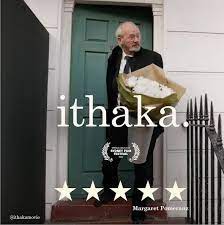
ITHAKA
Australia, 2022, 111 minutes, Colour.
John Shipton, Stella Morris, Julian Sands.
Directed by Ben Lawrence.
The focus of this documentary is Julian Assange. At the time of the release of the film, WikiLeaks is 16 years old, and still active in releasing documents unmasking abuses in all kinds of areas, not just in government, war and security, but concerned with climate change and abuses, exposes of violence…
While Julian Assange does appear in this film, it is mainly through photographs or by his voice on the phone (and the audience realising that the phone provides an outlet for communication and some sanity during harsh imprisonment, including 23 hours a day lockdowns in cells).
However, the focus of attention in the film is also on a Assange’s father, John Shipton, who separated from his wife before Julian was born. After 20 years, he came back into Julian’s life and in more recent years has been a constant champion, crusader for his son’s release. His at the centre of this film which was produced by his son, Gabriel, who also appears in the latter part of the film. At the time of the film-making, Shipton was 76. So, in this sense, the film is a portrait of Shipton.
Also prominent the film is Stella Morris, initially from South Africa, her family moving to Spain, her being part of Assange’s legal team, then his fiancee and lover, mother of two children, and eventually marrying in early 2022. She is a strong personality, committed to Julian Assange and his cause and liberty. (Jennifer Robinson, who has been spokesperson for Assange over many years, is glimpsed only once, going into the court.)
The action of the film takes place after Assaange’s years in the Ecuadorian Embassy in London. He has been confined to Belmarsh prison, harsh treatment. Visits were limited. However, over the decade there have been constant protests in his favour, all around the world. The case in point for his internment, and refusal of bail, is the American government’s demand that he be extradited to the United States on charges of treason because of his releasing so much documentation through WikiLeaks (and the famous sequence of the attack on civilians in Iraq is included at the beginning of this film).
Many people around the world have had difficulty in responding to Julian Assange and his personality, perhaps applauding his revelation of the secrets, but finding his personality difficult – and the information here that he is on the spectrum, Asperges, and long prone to depression and suicidal drives. In fact, his mental condition is a central part of the defence against his being extradited to the United States where the harsh imprisonment in Colorado would aggravate his depression and drive him towards suicide. This prevailed at the London hearing in 2021, 19 days of hearing, but the American government made an appeal.
The point is made that the investigator into the leaks came to the conclusion in 2013 that no life was lost because of the leaks.
In the background is Chelsea Manning, the information given to WikiLeaks by her and revealed. There is also an interview with Edward Snowden.
Throughout the film, there is a great deal of emphasis on the freedom of the press, whether Assange should be considered a journalist or not, and the consequences of his conviction on freedom to report by other journalists.
This is a film in support of Julian Assange, and, at the end, the listing of some governments, some officials, organisations around the world who are asking for his release.
But, in the meantime, this is an interesting and often engaging portrait of John Shipton, calm, edgy, giving myriad interviews, devoting his life to his son’s cause. The film is also a sympathetic and understanding portrait of Stella Morris and her personal and legal commitment.
There have been many documentaries and news coverage of Julian Assange – but Robert Connolly directed The Underground, 2012, a television feature about Julian Assange and his upbringing. And in 2013 there was The Fifth Estate, with Benedict Cumberbatch as Assange.
Conversations with a Killer: The John Wayne Gacey Tapes
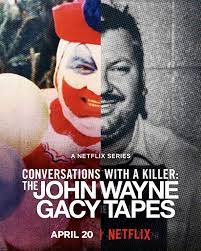
CONVERSATIONS WITH A KILLER: THE JOHN WAYNE GACEY TAPES
US, 2022, 183 minutes, Colour.
Directed by Joe Berlinger.
Producer and director, Joe Berlinger, has been working, principally on television, since 1983. His focus in the majority of his programs has been on true crime in the United States. He produced and directed the Paradise Lost series investigating the child murders in West Memphis, Arkansas. In 2019 he directed a feature film about serial killer, Ted Bundy, with Zac Efron in the title role, Extremely Wicked, Shockingly Evil and Vile. At the same time, he directed a television series, Conversations with a Killer, The TED Bundy Tapes, drawing on historical conversations taped with Bundy, including by Bellinger, much of which had previously not been made public.
Now he has done the same with serial killer, John Wayne Gacey. Gacey had already been the subject of a feature film in the 1990s, To Catch a Killer with Brian Dennehy in the central role. William Forsyth portrayed Gacey in the film about his correspondence with the victim who survived, Jason Moss, Dear Mr Gacey.
This documentary is in three parts, each in our long. In the first part, the audience learns the background of Gacy himself, family background, his marriage and child, his work at KFC, the gradual revelations about his interactions with the young men, his being arrested for assault and sentenced to jail. After release, he moved north, had a house in suburban Chicago, married again. There are some testimony in the first part from people he assaulted back in the 1960s.
The second part of the documentary has horrific moments as Gacy’s nature and behaviour are revealed. He could be ingratiating, often acting as a clown entertaining children, working for the Democratic Party, setting up his own building and repair company, always employing young men. There are testimonies from the families of some of his victims.
With suspicions, especially from a survivor, the police begin to take an interest in 1979 in Gacy himself, eventually getting permits to search his house, eventually discovering so many bodies of victims buried under the house.
As with the first part with interviews from victims, the second part focuses mainly on interviews with the police who are involved in the investigation and the arrest, photos of them at the time, some crime scene photographs and video of the time, but the men interviewed 40 years later, older, reflecting on their experiences and recalling what happened at the time. There is also interview footage with his young defence lawyer, Sam Amirante, his amazement at what Gacy can buy confided to him, the toll that it took on him, his work with his associate in defending Gacy in court and the loss of his case.
The third part focuses on the arrest, listening to Gacy himself from the tapes, his arrogance, manipulation, denials, a seeming wanting to confess in many ways. Then there is the trial and the build up then to his execution.
This is video and audio documentation on a monster, depraved behaviour, sadomasochism, sexual deviance, brutal murders. At times it is difficult watching. But a reality check on this kind of monstrous behaviour.
(Netflix released at the same time, a documentary on the British entertainer, Jimmy Savile, and his being unmasked eventually as the decades-long predator. It is very clear from the Jimmy Savile documentary, Savile created a media persona, living up to it, developing it, association with the rich and famous, but revealing very little of his underlying personality and monstrous behaviour. From the Gacy interview tapes, we hear Gacy himself creating a similar kind of persona which people responded to favourably, until this persona-mask was taken away and the truth revealed.)
Death She Wrote
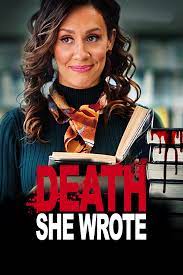
DEATH SHE WROTE
Canada, 2021, 87 minutes, Colour.
Samora Smallwood, Paula Brancati, Emmanuel Kabongo, Michelle Rambharose, Kaleb Alexander, Rachael Crawford, Will Bowes.
Directed by Sharon Lewis.
This is a pastime television movie. It is directed more particularly to a female audience with the central characters and issues.
In the film, Misery, we saw what the number one fan can do to us stalked and victim author. It is the same here. We are introduced to a very successful popular novelist (her reading at the book store is a text which is a touch banal). However, she has a huge following, or lining up for book signing.
In the line is an eager young woman, talking fast, looking earnest, immediately suspicious. So, it is quite a surprise when the authors agent, who is leaving to start a family, thinks that this young woman, awkward with a touch of adulation at her turn at getting a book signing, wants to be the new assistant. For the audience, she looks immediately to suspicious. However, she gets a trial run, ingratiate herself with the author who becomes dependent on her. She is one of these busy young woman whom nothing is a trouble.
She begins to intervene with the author’s life, going out with her nephew who is wary of her and her googles her and finds that she has been previously directed because of stalking a professor. And a mysterious young man keeps turning up trying to contact her – she knocks over the nephew in her car and is hospitalised, offscreen she murders the young man. Then she turns her attention to the authors boyfriend, about to propose. She interferes with the author’s phone, sending false messages, working on the author’s website, all kinds of promotions.
Crisis arises when the author decides not to continue her series, especially because the heroine is stranded under threat, and decides to write a memoir instead. This is too much for the young woman who begins to intervene, terrorising the author, a subsonic hum in her office, pills, falls messages to the fiance, turning up to meet the fiance’s parents, their drinking, liking her, and then the turning up, creating a situation.
It all comes to a head, the fiance learning the truth about her, confronting her and – rather upsetting for the audience wanting a happy ending – the fiance is killed.
When the former agent visits, and the author has been tied up, there is a final confrontation. Later, we see the author publishing her memoir which her assistant had vehemently and violently opposed, signing books and happy enough to kill off her threatened heroine and not worry about the response of the fans!
Rather expected characters and developments – but a pastime entertainment.
Petite Maman
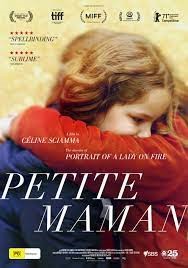
PETITE MAMAN
France, 2021, 73 minutes, Colour.
Josephine Sanz, Gabrielle Sanz, Nina Meurisse, Stephane Vaurupenne.
Directed by Celine Sciamma.
French writer-director, Celine Sciamma, as often focused on children in her films, Tomboy, Girlhood. She is also noted for dramas developing relationships between women, Portrait of a Woman on Fire.
This drama, something of a miniature running at 72 minutes, is about relationships and about childhood. It is a blend of realism and imagination and fantasy.
We are introduced to the little girl, Nelly, doing crosswords with residents of an aged care home where her grandmother has just died. She and her parents go to the grandmother’s home to pack things have everything in order. Her mother is quite distraught, loving nearly but, as her father informs her in the morning, her upset mother has gone. She has talked to her mother about her mother’s childhood days, in the same place, and building a hut in the woods. She is rather upset that her father does not remember any of these stories.
When Nelly goes out into the woods, she sees a young girl about her age, gathering branches to build a treehouse. Nelly helps, visits the young girl, Marion (her mother’s name) at her house and meets her mother. The two become friends, visits, meals, helping with the hut, bringing flowers and branches. Nelly tells her father about her friend.
But, with the names, with the hut, with the exchanges in the conversations, we realise that Marion is Nelly’s mother, back in that time, and nearly as communicating with her, understanding her, loving her.
So, while the film is something of an intimate look at a little girl and her relationship with her parents, takes on something of a childish mystical touch, the audience watching the two children (played by twins, Josephine and Gabriel Sanz, senses the effect on each character, the daughter understanding her mother, the mother and her love for her daughter.
Hence the title, the little mother, Marion and her mothering Nelly.
- Title? The mother? Her mother dying? The little Marion, and her mother?
- The setting, French provincial life, the home for the Aged, the grandmother’s home, Marion’s home, the treehouse? The minimal musical score?
- The setting, nearly saying goodbye to all the women in the home, doing the crossword puzzle? Memories of her grandmother? The van with the grandmothers possessions? In the car with her mother? Going to her grandmother’s home?
- Nelly, aged eight, her devotion to her grandmother, a love for her mother, the packing, cleaning, the bedroom, sharing it with her mother, on the couch, her mother’s disappearance? The meals, her father? Genial man, fixing everything, packing up? His not remembering the stories from the past? The game with the return ball, it’s breaking?
- Nelly, in the woods, discovering the treehouse, finding Marion, helping carries a log, building the house? Memories of her mother and the house?
- Transitions in time, Marion, preparing for the operation, her relationship with her mother, the walking stick? Marion and the name? The bond between the two girls, going to the house, nearly exploring the rooms? Going to visit Marian, they’re playing together, the boardgames? Building the house?
- The time transitions, Nelly calling Marion her mother, the talk about mothers and daughters, the role play, the reality, the timeshift?
- Nelly returning home, the conversations with her father, wanting to stay the night with Marion? The night, the crossword and Marion’s mother, farewelling her her way to the hospital after packing?
- Nelly, the story of the treehouse, her bringing the autumn branches and their decorating the house, cutting the string to tie branches together?
- Nelly returning home, her mother on the floor, sad, their being together? The future?
All the Old Knives
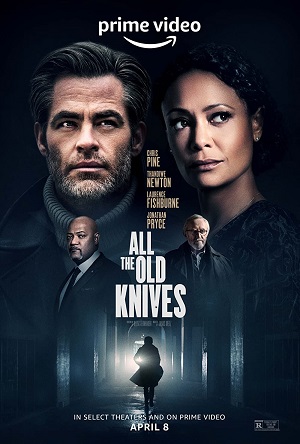
ALL THE OLD KNIVES
US, 2022, 101 minutes, Colour.
Chris Pine, Tandiwe Newton, Laurence Fishburne, Jonathan Pryce, Ahd, David Dawson.
Directed by Janus Metz.
The title has the echoes of the murder mystery title, Knives Out. However, while there is mystery, this is a 21st-century espionage story on, written by American thriller writer, Olen Steinhauer (who has also written television spy series, including Berlin Station). Practically every commentator notes the connection with John le Carre (as has been done here!).
To say that the plot is complicated is something of an understatement. Much of the action takes place in Vienna, 2012, the hijacking of a plane and the demands of the hijackers, the members of the unit in Vienna and the discussions about how to handle the situation. The officer in charge is played, with some solemn dignity, by Laurence Fishburne. Also on the staff is the researcher, Celia (Tandiwe Newton) who is having an affair with the seemingly happy-go-lucky staffer, freelancing type, Henry (Chris Pine) who had previously been stationed in Moscow, connected with negotiations about terrorists and Chechnya. Also present is the older agent, William, played by Jonathan Pryce.
There is urgency with the discussions, orders coming from DC, an undercover agent on the plane who is discovered – leading to suspicions that one of the staff has been in contact. Each of the members at the Vienna station is suspect.
Moving to 2020, the identity of the mole has never been revealed. However, one of the terrorists has given information and the head of the Vienna station, still Laurence Fishburne, commissioning Henry for a particular mission, to track down Celia in California, to confront her, and the challenge about naming the mole. He also pays a visit to William in London who telephoned Celia with a warning.
The plot becomes more complicated as Henry meets with Celia, remembers the past, Celia now happily married with children, but seeming to lead Henry on.
Which is where any review of All the Old Knives must stop, because the plot becomes more convoluted, twists, and not quite the ending we might have been led to believe!
- 21st-century spy drama? Memories of John le Carre?
- Espionage, hijacking, hostages, undercover agents, Langley, orders, Vienna bureau…? Complications?
- The structure of the film, the events in 2012, the hijacking of the plane, inside the plane? The Vienna bureau, meetings, personalities, discussions, contacts and sources? 2020, Henry Pelham and his mission, the bureau, the visit to London, the visit to California, the intercutting of the flashbacks? The musical score?
- The focus on Henry Pelham? Background working in Moscow, Chechnya, the rebels, betrayal to the government? Transferred to Vienna? His work, responsible to Vic? The relationship with Celia? The episode, observing, leaving, his meeting with the contact, the consequences? Years later, Vic, the commission, to ferret out the contact, eliminate?
- Celia, her past experiences, spy, agent, the episode with the hijacking, making her contact, getting information? Her relationship with each of the staff? The relationship with Henry, the scenes of passionate love-making? The irony is? Her leaving Vienna, to the US, marriage and two children, home life, the meeting with Henry, the fashionable restaurant, few customers, the staff, the irony of the revelations of the setup? The discussions with Henry, her love, memories of the past, explanations? The poisoning of the wine, a love, regrets, the truth, the aftermath and returning home?
- William Compton, older, his role, suspicions, contribution to the discussions, plans for action, attacking the plane? His leaving the bureau? In London, the visit from Henry, accusations and his being upset, phoning Celia to warn her?
- The other members of the staff, the code breaker, his latest suicide?
- Vic, in control, contact with Langley? Decisions? Still in charge, commissioning Henry to go to the US? Watching the surveillance footage? The death of Henry? Mission accomplished?
- The picture of the taking of the plane, the shooting of the flight attendant, the agent are board, his messages, being exposed, his being killed and the body thrown out? The message and demands?
- The Russian background, Chechnya, Muslim contacts?
- The title, memories of the past, the final revelation and consequences?
